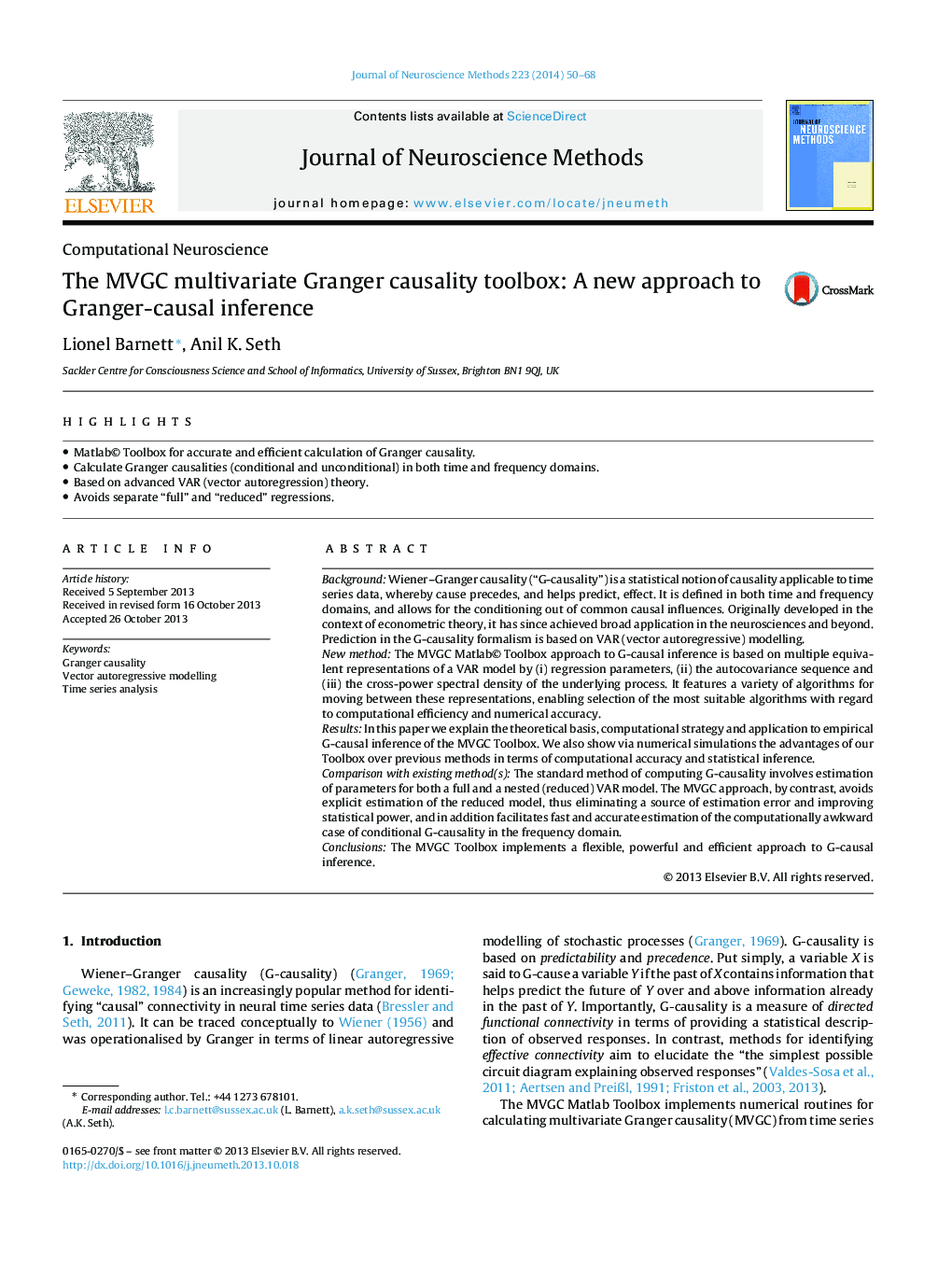| کد مقاله | کد نشریه | سال انتشار | مقاله انگلیسی | نسخه تمام متن |
|---|---|---|---|---|
| 4334974 | 1614646 | 2014 | 19 صفحه PDF | دانلود رایگان |

• Matlab© Toolbox for accurate and efficient calculation of Granger causality.
• Calculate Granger causalities (conditional and unconditional) in both time and frequency domains.
• Based on advanced VAR (vector autoregression) theory.
• Avoids separate “full” and “reduced” regressions.
BackgroundWiener–Granger causality (“G-causality”) is a statistical notion of causality applicable to time series data, whereby cause precedes, and helps predict, effect. It is defined in both time and frequency domains, and allows for the conditioning out of common causal influences. Originally developed in the context of econometric theory, it has since achieved broad application in the neurosciences and beyond. Prediction in the G-causality formalism is based on VAR (vector autoregressive) modelling.New methodThe MVGC Matlab© Toolbox approach to G-causal inference is based on multiple equivalent representations of a VAR model by (i) regression parameters, (ii) the autocovariance sequence and (iii) the cross-power spectral density of the underlying process. It features a variety of algorithms for moving between these representations, enabling selection of the most suitable algorithms with regard to computational efficiency and numerical accuracy.ResultsIn this paper we explain the theoretical basis, computational strategy and application to empirical G-causal inference of the MVGC Toolbox. We also show via numerical simulations the advantages of our Toolbox over previous methods in terms of computational accuracy and statistical inference.Comparison with existing method(s)The standard method of computing G-causality involves estimation of parameters for both a full and a nested (reduced) VAR model. The MVGC approach, by contrast, avoids explicit estimation of the reduced model, thus eliminating a source of estimation error and improving statistical power, and in addition facilitates fast and accurate estimation of the computationally awkward case of conditional G-causality in the frequency domain.ConclusionsThe MVGC Toolbox implements a flexible, powerful and efficient approach to G-causal inference.
Journal: Journal of Neuroscience Methods - Volume 223, 15 February 2014, Pages 50–68